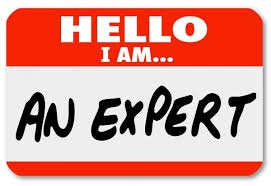
Many estate litigation cases involve the necessity of obtaining an expert opinion in the form of a written report that summarizes the evidence that the expert will and opinion give at trial. The expert must set out the factual assumptions and documents that were relied upon in forming the written expert report and opinion.
Expert reports are what is known in law as “opinion evidence and may contain hearsay evidence as per the following guidelines”
The Court of Appeal summarized the correct approach for dealing with opinion evidence of this type in Mazur v. Lucas, 2010 BCCA 473 (B.C. C.A.).
When deciding what weight to place on expert evidence, the trier of fact must assess the extent to which the expert relied on hearsay evidence and factual assumptions, and the reliability of those hearsay statements and assumptions. Madam Justice Garson for the Court summarized this as follows:
- An expert witness may rely on a variety of sources and resources in opining on the question posed to him. These may include his own intellectual resources, observations or tests, as well as his review of other experts’ observations and opinions, research and treatises, information from others — this list is not exhaustive. (See Bryant, The Law of Evidence in Canada, at 834-835)
- An expert may rely on hearsay. One common example in a personal injury context would be the observations of a radiologist contained in an x-ray report. Another physician may consider it unnecessary to view the actual x-ray himself, preferring to rely on the radiologist’s report.
- The weight the trier of fact ultimately places on the opinion of the expert may depend on the degree to which the underlying assumptions have been proven by other admissible evidence. The weight of the expert opinion may also depend on the reliability of the hearsay, where that hearsay is not proven by other admissible evidence. Where the hearsay evidence (such as the opinion of other physicians) is an accepted means of decision making within that expert’s expertise, the hearsay may have greater reliability.
- The correct judicial response to the question of the admissibility of hearsay evidence in an expert opinion is not to withdraw the evidence from the trier of fact unless, of course, there are some other factors at play such that it will be prejudicial to one party, but rather to address the weight of the opinion and the reliability of the hearsay in an appropriate self-instruction or instruction to a jury.




